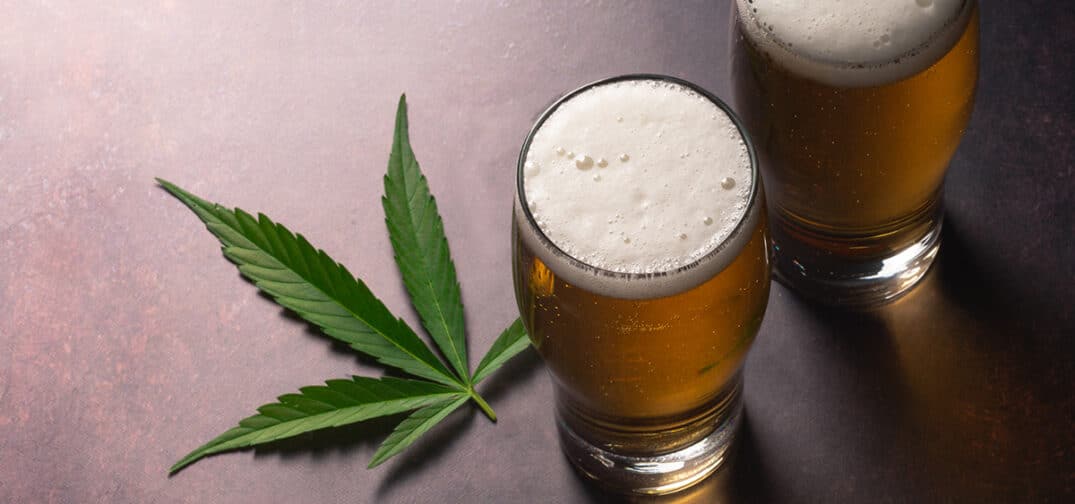In recent years, the cannabis industry has undergone a transformation, evolving from an underground, unregulated market to a legal and burgeoning sector. Within this transformation, a trend has emerged that seems to parallel the growth of another well-established industry: craft beer. Just as craft beer disrupted the traditional beer market and captivated consumers with unique “niche” offerings, the craft cannabis market is set to mirror this trajectory, offering high-quality products and a very personalized experience.
Roots of the Craft Movement
To understand the parallels between craft cannabis and craft beer, we must first delve into the origins of the craft movement itself. Craft beer emerged as a reaction against mass-produced, flavorless beers that dominated the market. Similarly, the craft cannabis movement is a popular counterpart to the standardized, mass-produced cannabis products that became prevalent following its legalization in various regions. Just as craft beer enthusiasts sought complexity, distinct flavors, and local character in their beverages, consumers in the cannabis space are now seeking unique strains, nuanced aromas, differentiated form factors, and specialized effects.
Quality Over Quantity
One of the central tenets of both the craft beer and craft cannabis movements is the emphasis on quality over quantity. Craft beer producers prioritize ingredients, brewing techniques, and innovative flavors, which has led to a renaissance of beer varieties. Likewise, craft cannabis cultivators focus on cultivation methods, genetic diversity, and unique manufacturing technologies to produce products with diverse cannabinoid and terpene profiles. This emphasis on quality has given rise to a diverse array of cannabis products, each catering to different preferences and needs.
Local and Artisanal Appeal
Craft beer’s appeal often lies in its local and artisanal nature. Breweries, often small and independently owned, become pillars of their communities, creating a sense of connection and loyalty among consumers. Similarly, craft cannabis cultivators are fostering a local and artisanal ethos. Small-scale cannabis farms are popping up, cultivating strains unique to their region and reflecting the local climate, soil, and culture. This localization creates a bond between consumers and producers, mirroring the connection fostered between craft beer enthusiasts and their local breweries.
Education and Appreciation
Both industries share a common goal: educating consumers about the intricate processes involved in crafting their products. Craft beer aficionados have embraced the art of brewing, learning about malts, hops, yeast strains, and brewing methods. Similarly, the craft cannabis movement encourages consumers to appreciate the complexities of different strains, understand the significance of cannabinoids and terpenes, and explore various consumption methods. This educational aspect not only elevates the consumer experience but also creates a culture of informed enthusiasts.
Diverse Consumption Experiences
The craft beer industry is known for its diverse range of styles, catering to a broad spectrum of preferences, from hoppy IPAs to rich stouts. Likewise, the craft cannabis industry offers an array of consumption methods, from traditional smoking to vaporizing, edibles, beverages, tinctures, and topicals, amongst others. This variety allows consumers to choose the method that best suits their preferences and lifestyles, contributing to the personalization and customization that defines the craft movement.
Regulations and Challenges
However, both industries also face common challenges, particularly in terms of regulations. Craft beer producers often struggle with regulations that favor larger beer corporations, making it difficult for small breweries to compete on an equal footing. Similarly, the craft cannabis industry faces regulatory hurdles that can hinder small-scale cultivators. Striking a balance between ensuring product safety and allowing smaller players to thrive is a challenge that both industries must navigate.
The Future of Craft Cannabis
As the craft cannabis industry continues to develop, it is positioned to follow the trajectory of craft beer, albeit with its unique challenges and opportunities. While there will be obstacles to overcome, the demand for high-quality, locally sourced, and artisanal cannabis products is expected to grow. Just as craft beer transformed the beer landscape, the craft cannabis movement is reshaping the cannabis experience, appealing to consumers’ desire for quality, diversity, education, and community.
In conclusion, the parallels between the craft cannabis and craft beer industries are undeniable. Both movements have emerged as responses to mass production, offering quality, diversity, education, and a sense of community. As the craft cannabis industry gains momentum, it is poised to mirror the success and impact of craft beer, providing consumers with an elevated and personalized experience that reflects the values of the modern era.
Get daily cannabis business news updates. Subscribe
End
